Yamaha, Honda, Kawasaki and Suzuki pursue Hydrogen power
While much of the world has been going headlong in the direction of EV/Battery technology to power the transition from fossil fuels, Japanese manufacturers have not been quite as convinced and have continued to concentrate efforts on the potential of hydrogen as the next viable fuel source to power us into the decades ahead.
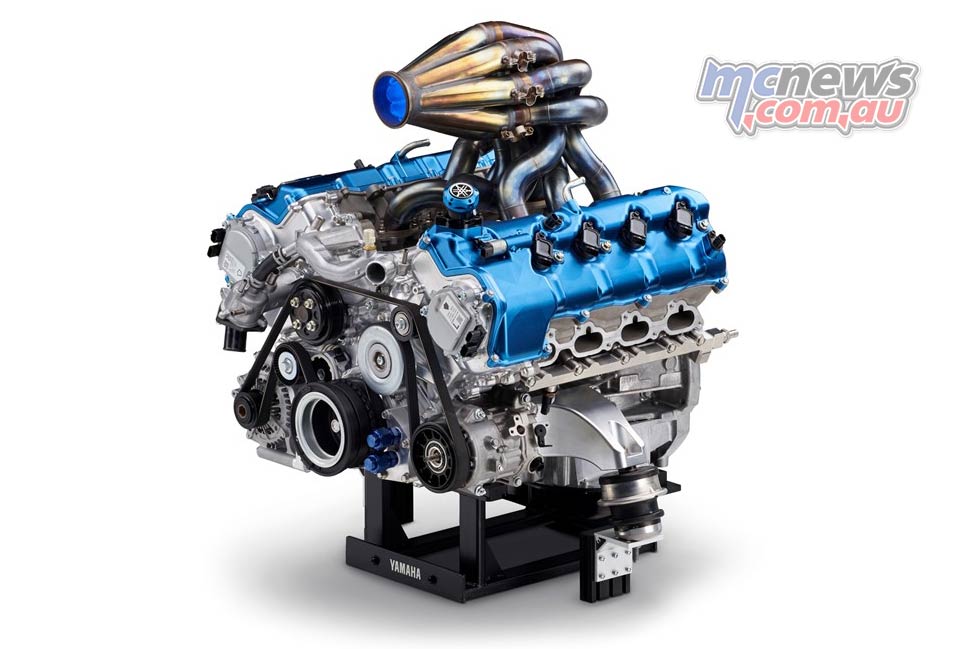
A hydrogen powered prototype V8 Yamaha have been working on for some time
Toyota have heavily invested in hyrdogen powered cars and to show its performance potential in race spec’ Corolla’s. Until last year, these hydrogen-powered Corollas had been fueled by gaseous hydrogen. However they are now running on liquid hydrogen which allows for more compact mobile hydrogen stations. Liquefaction reduces the required size of transport trucks and eliminates the need for facilities that boost pressure up to 70MPa. This shrinks the footprint of a station to about one-quarter of that needed for gaseous hydrogen.
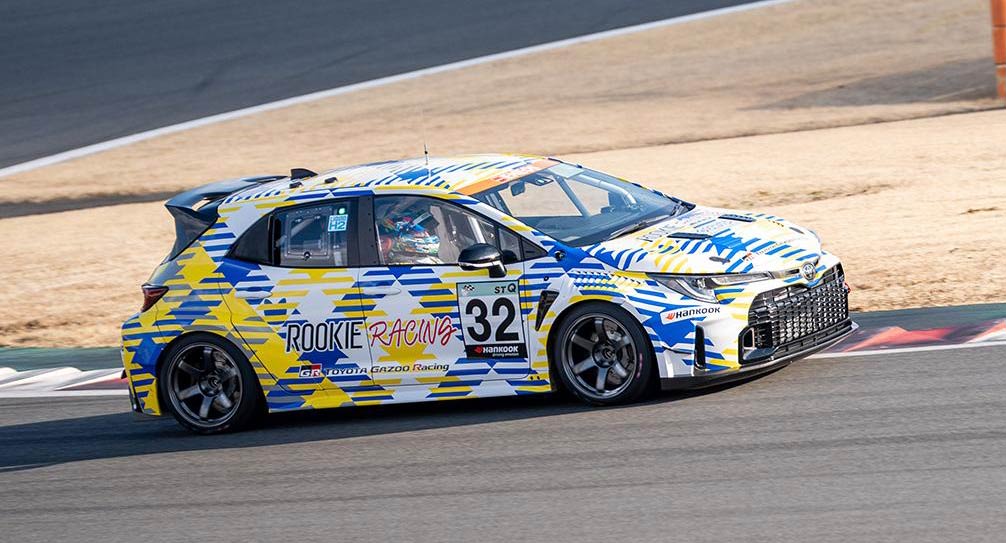
For gaseous hydrogen, tanks are filled at high pressure and must therefore be cylindrical. When the fuel is in a liquid state, however, there is no need for tanks to be pressurised and thus tanks could be shaped conveniently for under-floor mounting, offering the potential to improve packaging efficiency. Toyota are working to overcome various challenges such as maintaining the ultralow temperature of -253°C during refueling and storage, and dealing with natural vaporisation as tanks heat up.
Toyota are also heavily involved in the development of hydrogen powered generators to provide power to industrial complexes and localities.
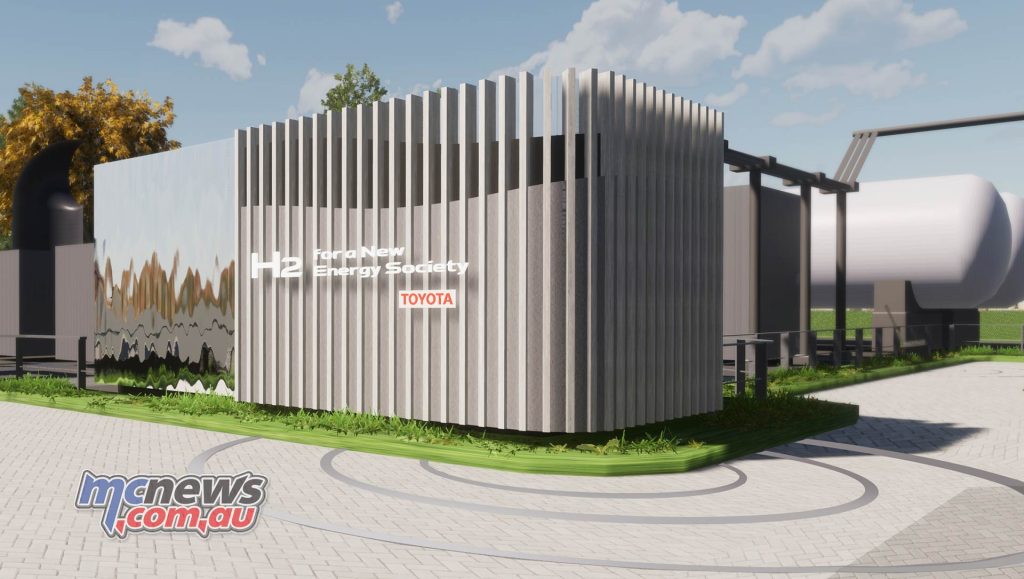 While Japan seems to have a large part of their focus on the potential of hydrogen they are not alone.
While Japan seems to have a large part of their focus on the potential of hydrogen they are not alone.
Bosch have teamed up with Ligier in a strategic partnership for developing high-performance hydrogen engine vehicles and will showcase such a vehicle at the Le Mans 24 Hour.
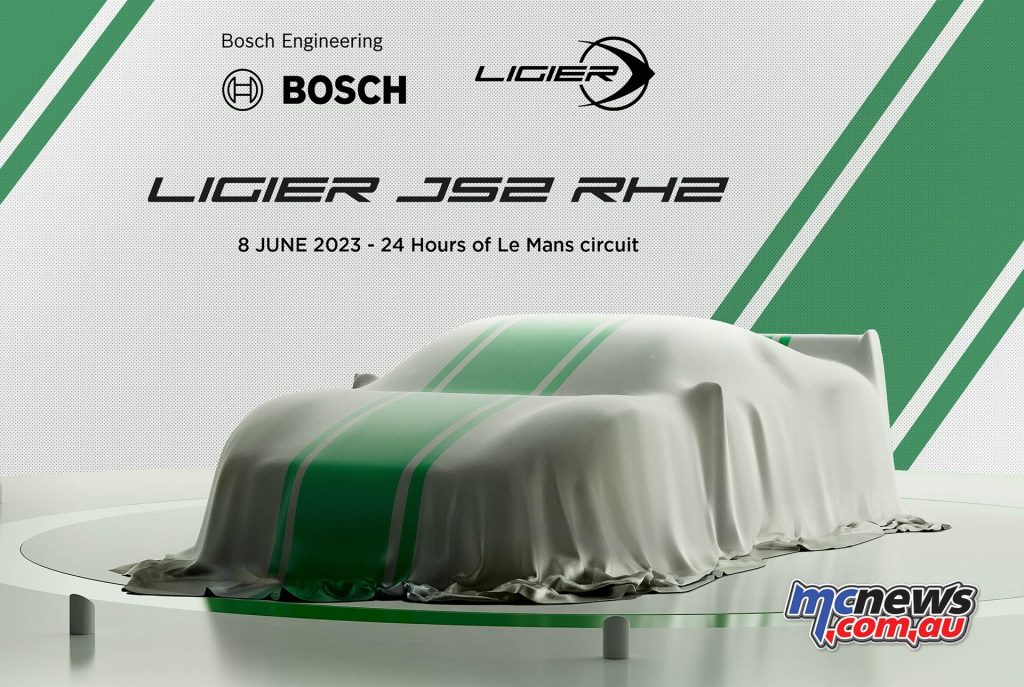
Volvo are testing trucks that use their own hydrogen powered engines to charge their onboard EV battery banks for a range of up to 1000 kilometres and a refuel time of less than 15 minutes. Volvo plan to have these fuel cell electric trucks on the market in the second half of this decade.
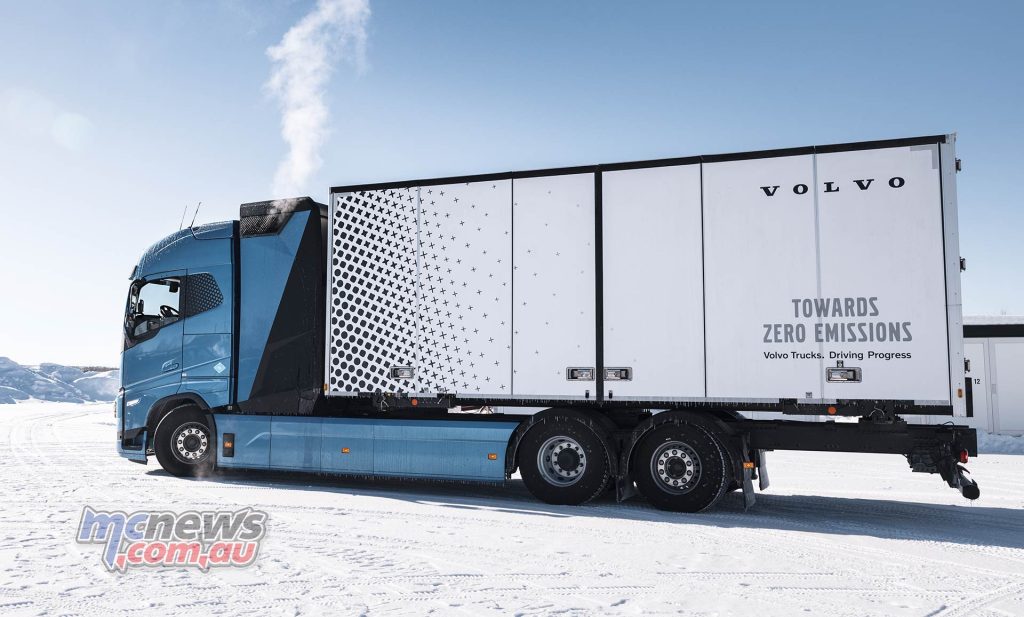
BMW have also launched a pilot fleet of BMW iX5 hydrogen vehicles.
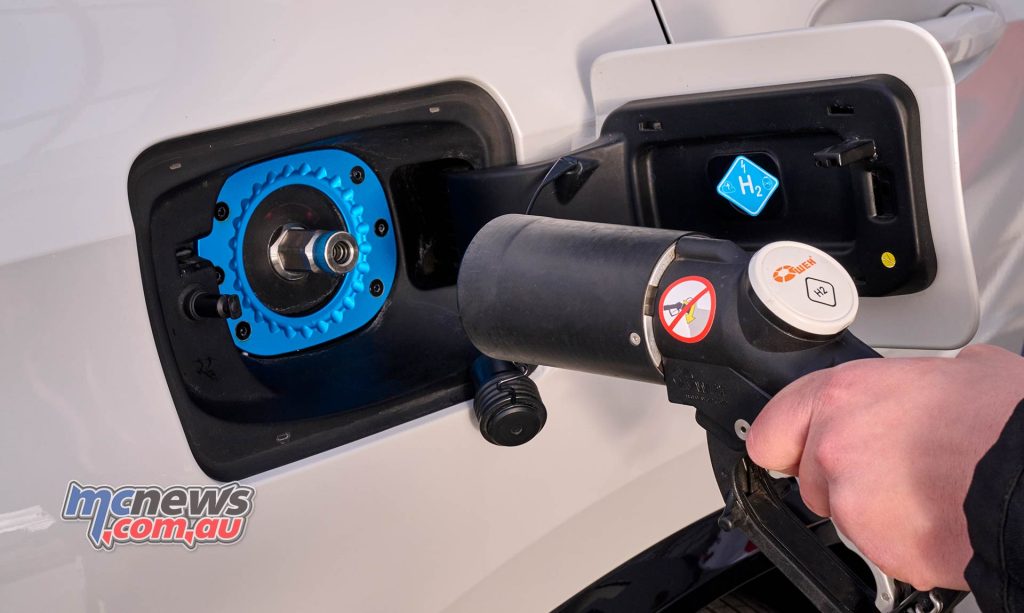
“Hydrogen is a versatile energy source that has a key role to play in the energy transition process and therefore in climate protection. After all, it is one of the most efficient ways of storing and transporting renewable energies”, said Oliver Zipse, Chairman of the Board of Management of BMW AG. “We should use this potential to also accelerate the transformation of the mobility sector. Hydrogen is the missing piece in the jigsaw when it comes to emission-free mobility. One technology on its own will not be enough to enable climate-neutral mobility worldwide.”
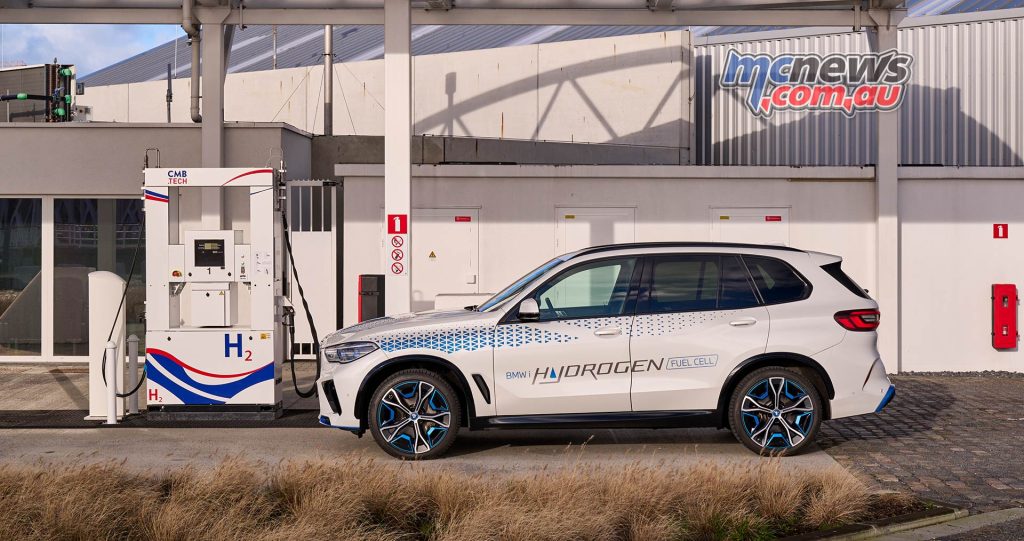
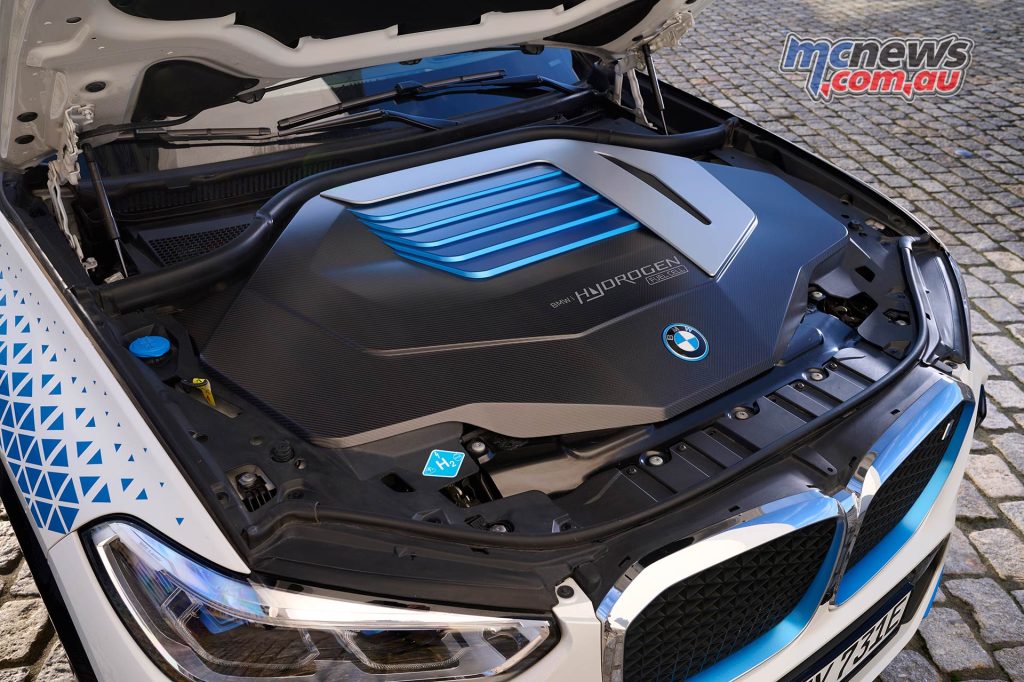
The big four Japanese motorcycle manufacturers, Yamaha, Honda, Kawasaki and Suzuki this week announced that they have received approval from their Ministry of Economy, Trade and Industry to form a technological research association called HySE (Hydrogen Small mobility & Engine technology) for developing hydrogen-powered engines.
Along with the aforementioned packing challenges that Hydrogen present, the use of hydrogen also poses other technical challenges, including fast flame speed and a large region of ignition, which often result in unstable combustion.
Members of HySE are committed to conducting fundamental research, capitalising on their wealth of expertise and technologies in developing gasoline-powered engines, and aim to work together with the joint mission of establishing a design standard for small mobility’s hydrogen-powered engine, and of advancing the fundamental research endeavors in this area.
Kenji Komatsu, Chairman nominee of HySE and Executive Officer of Technical Research & Development Center, Yamaha Motor Co. Ltd., comments, “We are extremely pleased to announce the planned formation of the association. There are many challenges in the development of hydrogen-powered engines, but we hope to see the association’s activities advance the fundamental research in order to meet those challenges. We are committed to this endeavor with a sense of mission to preserve the use of internal combustion engines, which epitomize the long-time efforts that our predecessors have invested.”
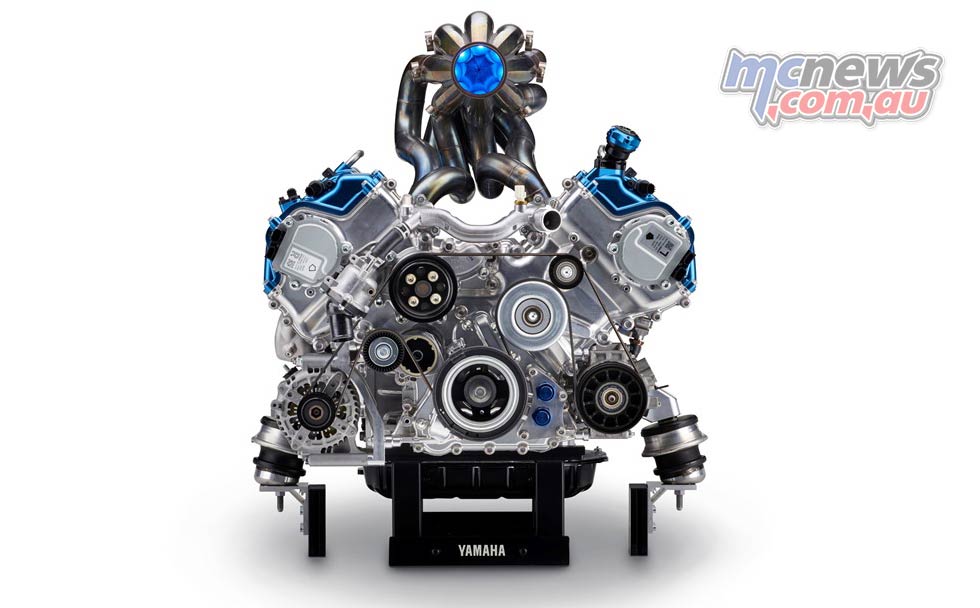
A hydrogen powered prototype V8 Yamaha have been working on for some time
The role of each company
Honda has been tasked with research on the model-based development of hydrogen-powered engines.
Suzuki will focus an element study on functionality, performance, and reliability of the hydrogen-powered engines.
Hands-on research using real hydrogen-powered engines on their functionality, performance, and reliability will be conducted by Yamaha and Kawasaki.
Yamaha are also tasked with studying the requirements for a hydrogen refueling system and hydrogen tanks for small mobility.
Kawasaki will take the lead in studying the auxiliary equipment required for a fuel supply system and tanks, and the equipment installed between the fuel tank and the injector.
In addition to the full members Kawasaki Heavy Industries and Toyota Motor Corporation support the association as special members.
Kawasaki Heavy Industries are already one of the main organizers of the “CO2-free Hydrogen Energy Supply-chain Technology Research Association” and will help drive forward HySE’s activities, based on the knowledge gained from its activities.
Toyota, on the other hand, will assume the role of leveraging HySE’s research results to the maximum benefit for the development of hydrogen-powered engines, utilising its know-how on experiments, analyses, and the designing of large hydrogen-fueled power units for four-wheel vehicles.
Fingers crossed that this alliance produces great results as recent advances in the production of hydrogen help to make this option more viable.























